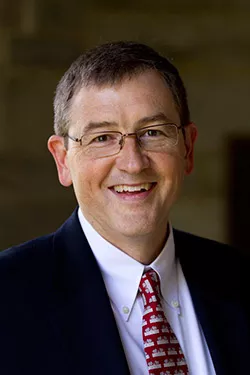Vice President of Admissions Jim Bock '90 on the Benefits of a Liberal Arts Education

The Guardian: Could liberal arts colleges become America’s finest export?
Unlike cheerleading, ultimate frisbee, and flip cup, one feature of US higher education that has struggled to cross the Atlantic is the concept of small, campus-based, liberal arts colleges.
These tiny private institutions may seem completely different from the UK’s typically large, research-intensive, state-funded universities. But, with its focus on both teaching and research, holistic admissions processes and flexibility for students, the liberal arts model is catching on all over the world.
Swarthmore College is a classic example – highly selective, expensive and set on an idyllic campus just outside of Philadelphia. Jim Bock ['90], its vice-president and dean of admissions, tells me: “It’s a college education where you get to study a mixture of humanities, social sciences and the natural sciences. It’s traditionally for 18- to 22-year-olds who want a bachelor’s degree in arts or in science. We don’t have a graduate school.”
…
So what are the benefits of such a diverse roster of subjects? For the many 17-year-olds who don’t know exactly what they want to do, the approach keeps their options open. And even for those who do have a career path in mind, Bock says, liberal arts offers a wider educational grounding and development of critical thinking skills.
“This type of education can you make you nimble in the job market,” he explains. “We did a survey of our alumni about what they were doing now – 95% said they felt their education was relevant to what they did, but only 25% were doing something directly linked to their major.
“It’s not right for everyone. Of course we need people with specialist knowledge and training – for manufacturing, medicine, all sorts of jobs. But in business, particularly, we do get CEOs saying that they want people with a whole range of skills. They want people who can write analytically, think creatively, collaborate, solve problems… and you can get that on this type of course.”
...
Students and staff are strongly encouraged to “give back” to the community and more than 60% of students are currently involved in voluntary work. The result, Bock says, are graduates who have a lifelong passion for academic enquiry and a keen sense of civic duty.
“It’s not just about going to college in order to get a good job and high salary,” he says.
Bock says what sets colleges like his apart is their receptiveness to different skills and talents: “We take a holistic view, looking at the non-cognitive skills and critical thinking. It’s not just about knowledge; grades are a starting point but not an ending point.”
Read the full article at The Guardian.



